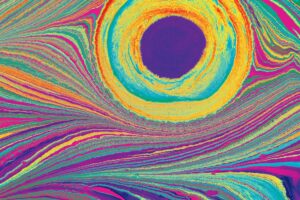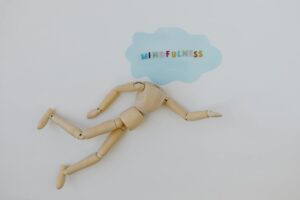The human experience is inherently multidimensional, filled with a range of emotions, perceptions, ideas, and experiences that are individual as they are unique. Feelings of lucid dreaming, out-of-body experiences, time dilation, and the belief in parallel universes are all examples of altered states of reality. The exploration of these states of mind has been a human endeavour for millennia, with one method making a remarkable resurgence in recent years: the purposeful ingestion of psychedelics to trigger a variety of cognitive and perceptual changes.
Psychedelics, from LSD to psilocybin to DMT, have been thrust into the mainstream discourse as a tool for understanding our own minds and the realities that reside within them—a notion backed by a substantial body of neuroscientific research. These substances are not merely recreational but also catalysts for profound psychological insight.
One such state psychedelics can induce is lucid dreaming, where one remains aware while dreaming. In such states, the dreamer witnesses a reality that appears and feels as real as anything in the waking state. Similarly, out-of-body experiences—the perception of floating outside one’s physical form—are often reported under the influence of psychedelics, challenging our perceptions of selfhood.
Similarly, psychedelics can pull back the curtain on time dilation, a psychological phenomenon in which one’s subjective perception of time is altered. Time can either slow down or speed up, allowing the user to exist in a moment for hours or blaze through years in mere seconds.
Psychedelics also engender notions of parallel universes and multidimensional realities. For instance, DMT—commonly consumed in the shamanic brew Ayahuasca—is notorious for granting visions that suggest the existence of other realities. Users often report fantastical journeys through hyperspace and encountering intelligence in these alternative dimensions. Intriguingly, these experiences are strikingly similar to those described through the known phenomena of astral projection.
The concept of reality tunnels—the personal, subjective universes we each inhabit, shaped by our ideas, beliefs, and experiences—is another phenomenon that psychedelics can bring to the fore. By altering our perceptual filters, psychedelics allow us to view our reality tunnels from a different perspective and challenge our deeply-held beliefs.
In the contemporary era, the psychedelic experience has been likened to virtual reality technologies, offering immersive experiences that alter our sense of self and environment. However, unlike VR technology that displays a fabricated reality, psychedelics unveil layers of our own consciousness.
Through all these experiences, what psychedelics truly offer us is a way to explore the deepest corners of our minds and the realities therein. They allow us to step outside our everyday perceptions and assumptions, to engage with our experiences more deeply, and perhaps to comprehend the enigma of consciousness itself.
Ultimately, it’s crucial to note that psychedelic experiences can be intense and potentially disturbing. Therefore, they should be approached responsibly, ideally under the guidance of experienced professionals or within research settings.
In conclusion, psychedelics offer a unique window into the nature of consciousness, yielding insights into the role that our mind plays in constructing our experience of reality. Further research into these substances promises deeper understanding of the profound and puzzling aspects of the human mind and its realities.







